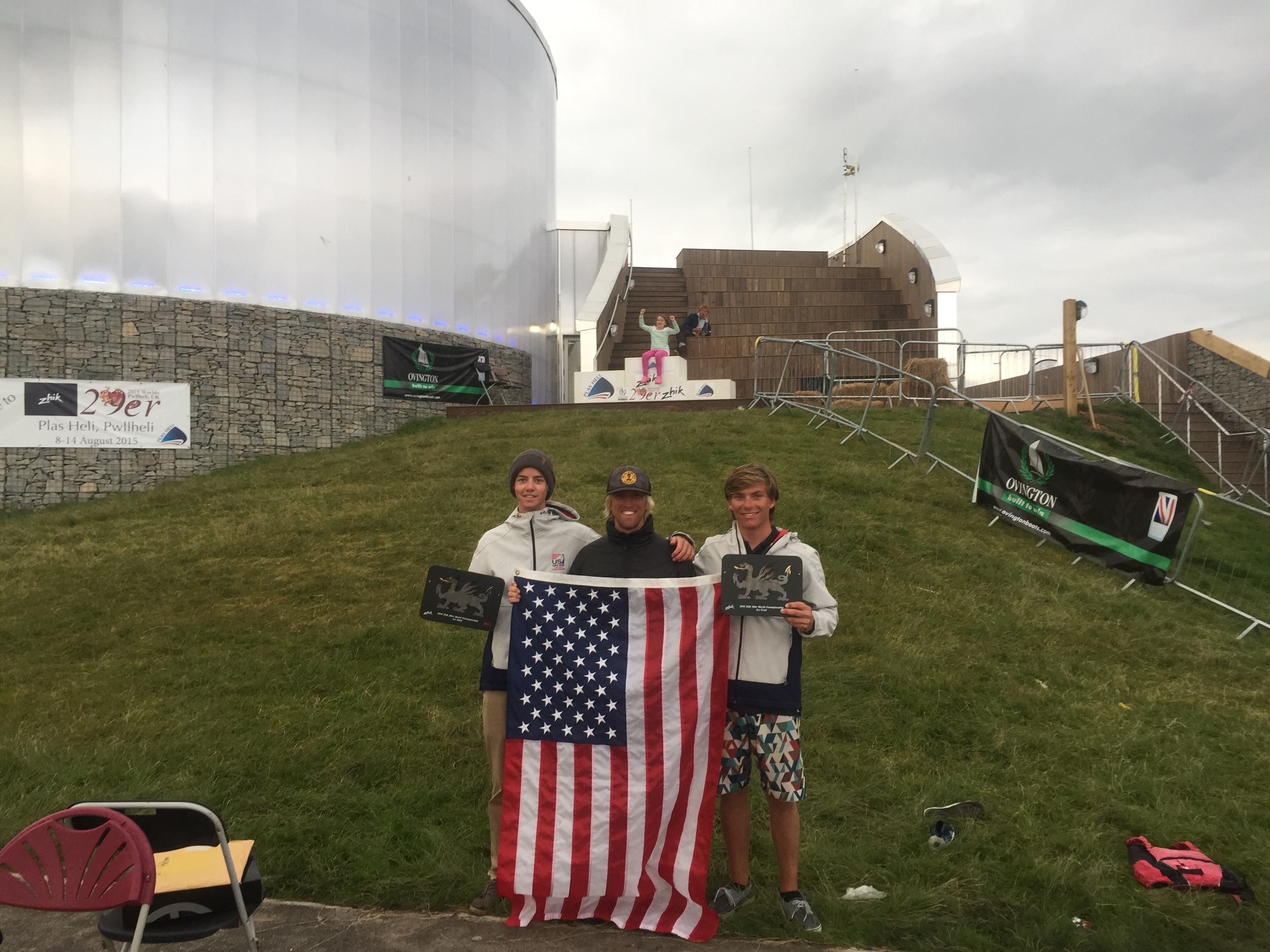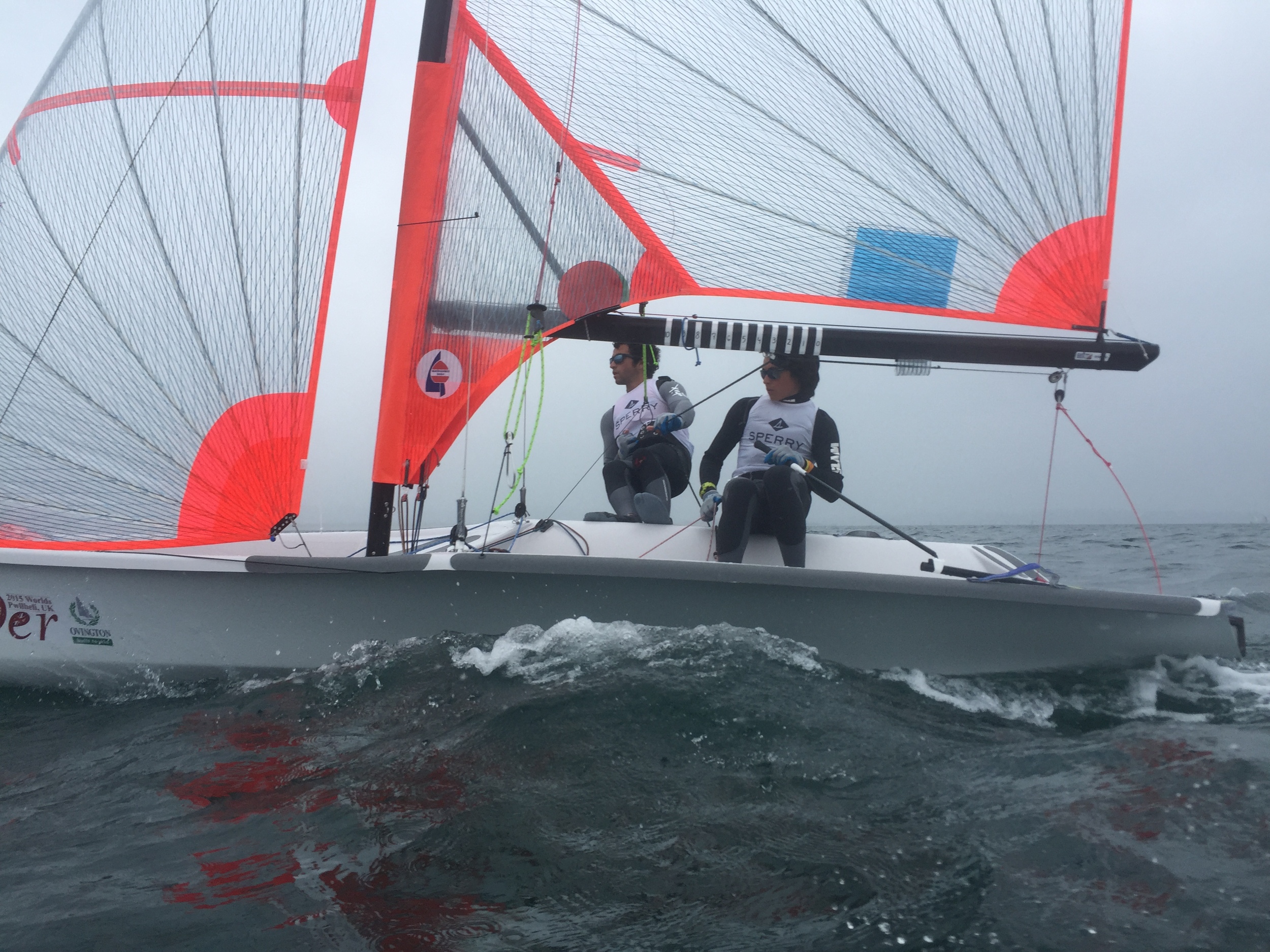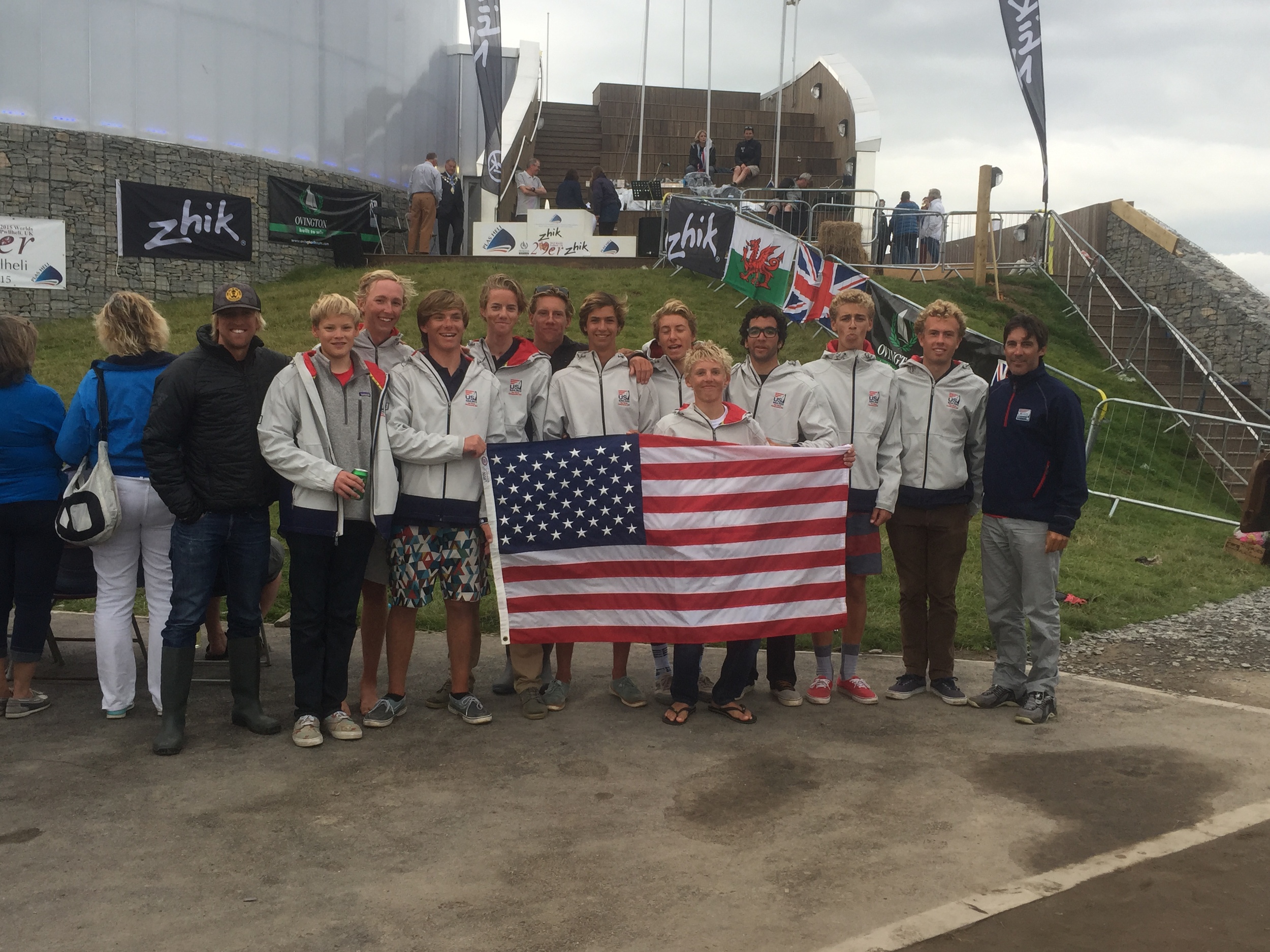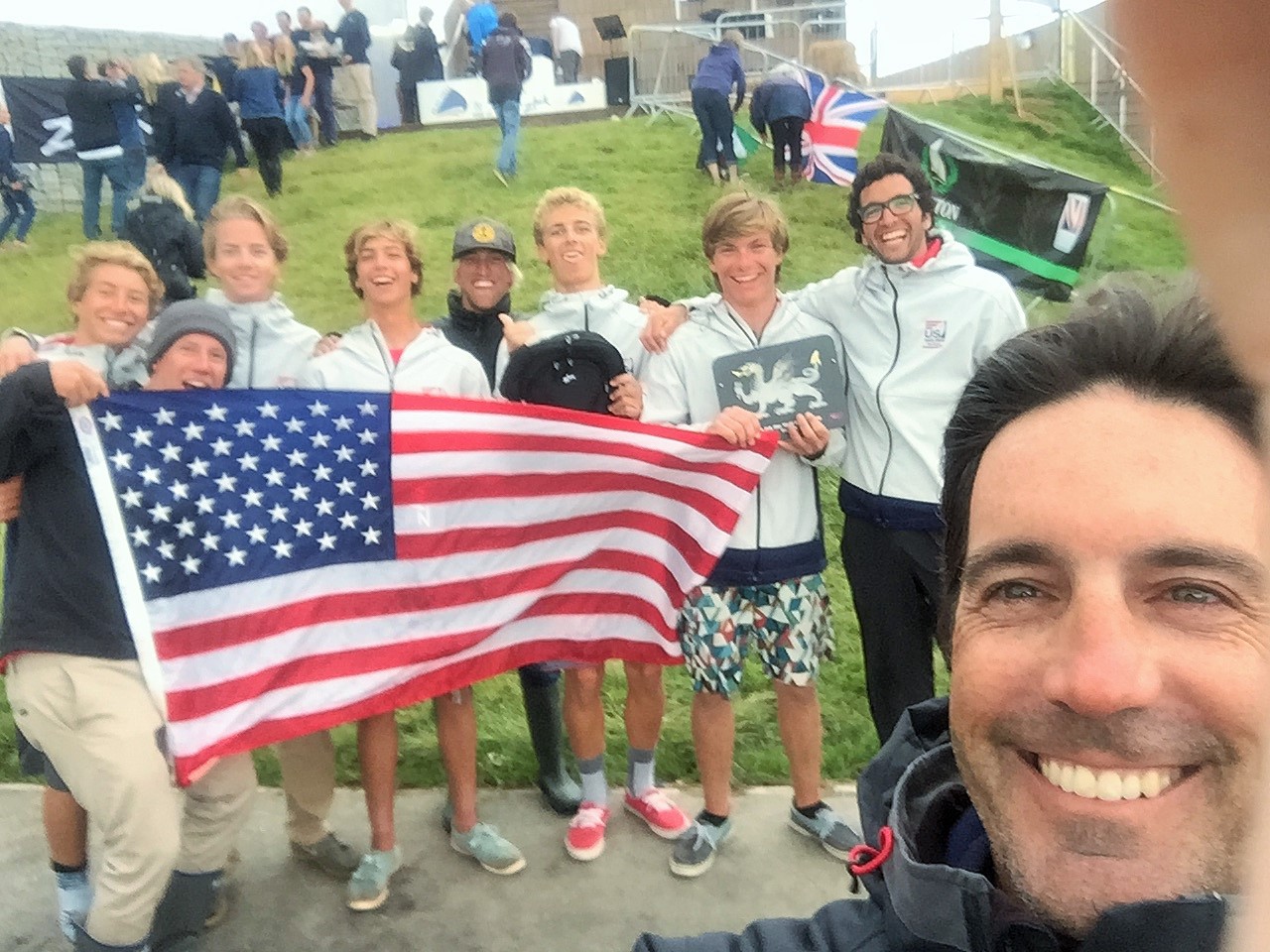In March of 2011 I received this e mail from Craig Wilson:
Quinn really wants to sail on Sunday if that’s still a possibility… Whatever is best for Newt and Dane. Quinn’s time will come.
cw
That weekend, Quinn got his first taste of 29er sailing in a strange easterly breeze, tacking up the coast towards Summerland in a thick bank of fog. After about an hour of beating upwind, Quinn had a big grin on his face, as he marveled at how fast we had gotten down the coast, and how he had never been so far from the harbor before… Just over 3 years later, Quinn returned home from the ISAF Youth World Championships in Tavira, Portugal with his crew Riley Gibbs, bouquets in hand, and silver medals hanging around their necks. After spending this past year transitioning into a crewing position for his fourth and final ISAF Youth Worlds, there is very little that Quinn hasn't done in this class.
As he sets his sights on a new chapter of adventure (check out @saltybrotherfilms), here are a few insights from the champ, to help the next generation dream big.
What do you remember most about your first ISAF Youth World Qualifier?
For me it was definitely the most important and most exciting qualifier of the four I sailed. The first time was a lot bigger deal for me than the other times because we hadn't been sailing the boats for very long, and we were hungry to get to the top. It was the best lead up to an event I think I have ever had. Dane and I practiced in an old Youth Foundation boat with sails that were about 50% duct tape. We were on the water almost every day in SB for a few months straight; we even practiced a few hours on Christmas Day! We were very excited about the qualifiers and for me I was still excited just to be sailing a 29er.
We had no pressure and nothing to prove so it was a lot less stressful than some of the other years. We had only sailed one other regatta together before the qualifier, so nobody really expected much. It was also very cool for me being as young and small (80 lb.) as I was to be competing against the older, more experienced kids. The qualifier was definitely an emotional roller coaster. We went from winning by a lot, to losing going into the last race, and just managed to pass the boat we needed to beat at the end of that final race. I remember sailing in afterwards - I don’t think I have ever had that same feeling of accomplishment from sailing since.
What was it like this last time?
It was totally different this last time. I think I put a lot less pressure on myself than the years before, so I enjoyed the lead up more, but I don't think it helped our performance. I think we were the most prepared and at the same time the least prepared that I have ever been. Most prepared meaning that we were very polished and felt very good and had a ton of experience between the two of us on the boat. But I felt less prepared because we still had room for improvement and could have still been a lot better. It was difficult to get enough practice hours in living 6 hours away from each other.
What did you learn in the 4 years of sailing the 29er?
That’s a big question.
I think the number one thing that I learned was to not copy the best guys - to invent your own way of sailing. I think the biggest mistake young sailors have is that they start sailing a new boat and they try to be like the guys that are at the top. That could be the right thing to do for a while, but when you are in awe of the best or want to be like the best, there is no way you will ever beat the best. If a coach tells you something, assume that coach told everybody that same thing.
What would your advice be for a current opti sailor or beginning 29er team with their sights set on the ISAF Youth Worlds podium?
Practice a lot! Really - Practice a lot! Sail by yourself more then with other people. Get your boat handling down before worrying about racing. The only way you will win is if you practice more and become better at sailing the boat then everybody in the world, which is not an easy task. You need to do something different. Think outside the box. Sail differently than the next guy and don't think that because one person has been winning a lot or is the best in the world, that they can't be beaten. Anybody can win at any time.
What is your next focus?
Definitely ready for a break from sailing for a bit. These last 4 years have been an amazing learning experience that will stay with me forever. Right now I’m going to work mostly on school, film making with #Saltybrotherfilms, and maybe get my kite board racing career started finally! You can bet that I'll be thinking outside the box in all of those arenas too!
Be sure to check out Quinn and Dane's latest project @saltybrotherfilms on Instagram






